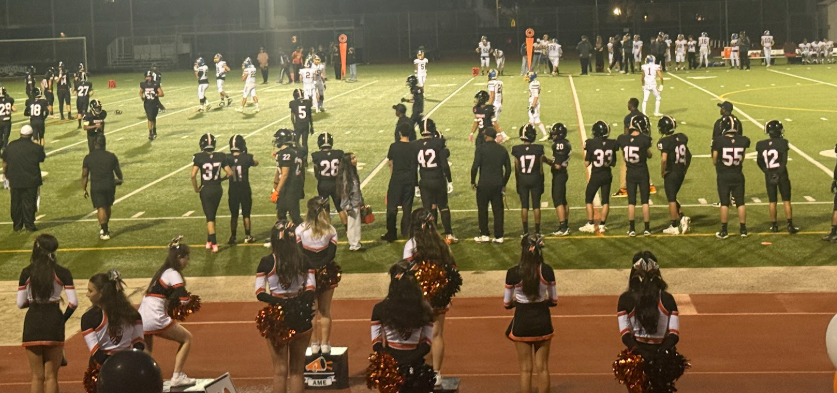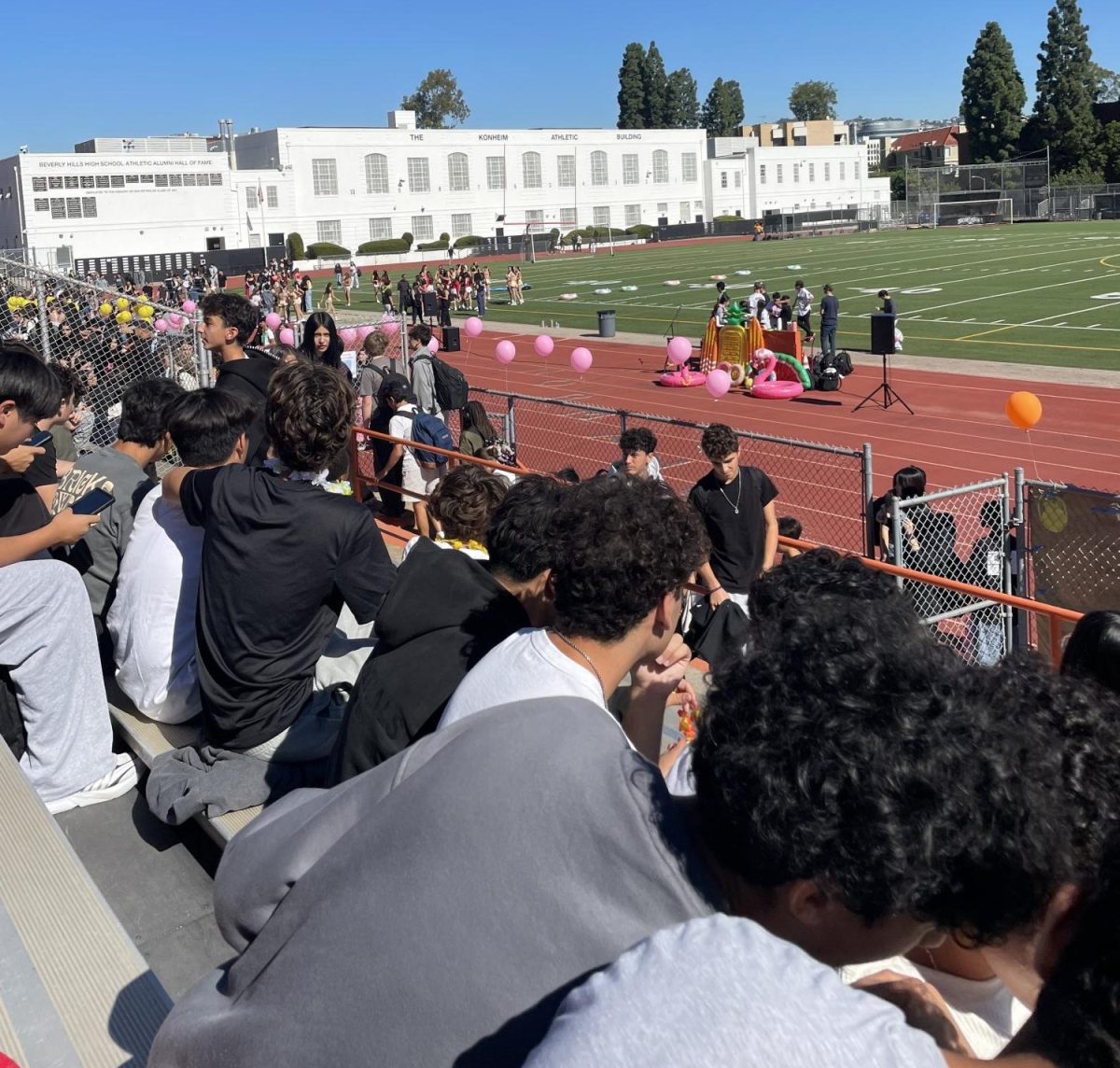Kevin Park, staff writer
On Nov. 6, 2012, the most crucial event of the year will determine the future of America: the 2012 United States Presidential Election. Like previous presidential elections, this year’s election has brought a series of vigorous battles between two very distinct candidates: President Barack Obama (Democrat) and Gov. Mitt Romney (Republican). As it seems that both candidates have laid out most of their agendas through debates and their campaigns, we have to see what will be the outcome of this election. So here are the five essential things that you should know on Nov 6, 2012.
Which states are swing states this year?
With Electoral College in the United States, one of the most crucial parts of presidential election has been the role of swing states, which have a critical impact on determining the president. Florida was one of the most crucial swing states in 2000, which determined Republican George W. Bush’s presidential victory over Democrat Al Gore whose popular vote was higher than Bush’s. Ohio was one of the most crucial swing states in 2004, which consequently helped George W. Bush’s victory again. In 2008, many of the swing states like Nevada, Michigan and Florida all leaned to Democratic Party, contributing Obama’s victory. So, which are the crucial swing states which will determine this year’s election? It appears to be they are Colorado, Florida Virginia and Ohio according to Los Angeles Times. Colorado has a record of being a swing state for almost a decade. Holding nine electoral votes, Colorado will have a significant impact in 2012 election. Florida, yet again, will have a huge impact in 2012 election, holding 27 electoral votes. Although Florida had leaned towards Romney according to Maiami New Times, Obama is gaining a surprising amount of support lately, forming a huge ambiguity. Virginia is another crucial swing state, holding 13 electoral votes. The most important state, however, is Ohio. According to a very likely scenario in which Obama gets Wisconsin and Iowa, while Romney gets Colorado, Florida and Virginia, only Ohio is left to decide who will win. In the latest poll from University of Cincinnati, Obama gained 50% of the votes, while Romney 49% of the votes. So, so make sure to keep an eye on these crucial swing states.
With Electoral College in the United States, one of the most crucial parts of presidential election has been the role of swing states, which have a critical impact on determining the president. Florida was one of the most crucial swing states in 2000, which determined Republican George W. Bush’s presidential victory over Democrat Al Gore whose popular vote was higher than Bush’s. Ohio was one of the most crucial swing states in 2004, which consequently helped George W. Bush’s victory again. In 2008, many of the swing states like Nevada, Michigan and Florida all leaned to Democratic Party, contributing Obama’s victory. So, which are the crucial swing states which will determine this year’s election? It appears to be they are Colorado, Florida Virginia and Ohio according to Los Angeles Times. Colorado has a record of being a swing state for almost a decade. Holding nine electoral votes, Colorado will have a significant impact in 2012 election. Florida, yet again, will have a huge impact in 2012 election, holding 27 electoral votes. Although Florida had leaned towards Romney according to Maiami New Times, Obama is gaining a surprising amount of support lately, forming a huge ambiguity. Virginia is another crucial swing state, holding 13 electoral votes. The most important state, however, is Ohio. According to a very likely scenario in which Obama gets Wisconsin and Iowa, while Romney gets Colorado, Florida and Virginia, only Ohio is left to decide who will win. In the latest poll from University of Cincinnati, Obama gained 50% of the votes, while Romney 49% of the votes. So, so make sure to keep an eye on these crucial swing states.
Tax, tax, and tax.
For more than three decades, taxes have been one of the most prominent issues in presidential elections. In his administration, former President George W. Bush proposed Economic Growth and Tax Relief Reconciliation Act of 2001, and Jobs and Growth Tax Relief Reconciliation Act of 2003, providing enormous tax cuts to all classes. Often dubbed as ‘Bush tax cuts,’ it was intended to be a big tax relief for economic boom in the late ‘90s and early 2000s, but Obama claims that it was the reason for the big recession after the subprime mortgage crisis. Although it was set to expire in 2010, Obama’s administration proposed to extend it for two more years to stimulate the economy by keeping the tax rates low in recession. However, in 2013, the Bush tax cuts will expire, and the two candidates’ policies are very distinct. First, Romney wants to extend the Bush tax cuts to stimulate the economy even more. His vice-presidential candidate, Paul Ryan, also supports the extension of Bush tax cuts, while proposing additional tax cuts on income through investment returns and capital gains. One the other hand, Obama proposes to expire the Bush tax cuts only for the families who have a household income that is higher than $200,000, meaning the Bush tax cuts will remain for the middle and lower classes. Regardless of the two candidates’ proposals, the American economy will likely to move into an expansion phase due to business cycle. In an expansion period, many economists, like John Keynes, suggest to raise taxes theoretically; but in a real world, raising taxes might cause a rollback effect in economy, causing stagnant growth. Therefore, it will be up to you to compare their policies and decide which policy between two candidates’ policies will work better for the country.
Employment and unemployment.
One of the most talked topics in the last three debates between Obama and Romney was unemployment. The employment index shows how many Americans are productive and can consume to stimulate the national economy. According to U.S. Bureau of Labor Statistics, the unemployment rate marked 7.8% in last September, which is the lowest since 2009. Although the index shows some positive aspects, both candidates underscored their job creating policies in the debates. First, Obama’s policy is to invest in higher education to indirectly increase the quality and quantity of jobs. The focused industry will be high technology industries, such as recyclable energy, telecommunication, computer hardwares and softwares companies whether they are big or small businesses. Romney’s policy, on the other hand, is to indirectly invest in private sector by lowering business taxes to enable them to hire more people and produce economic output more efficiently. He focuses not only on big corporations but also on small businesses, emphasizing that small business should be the core of the national economy. Both candidates’ polices are very rational and proper approaches, though the difference will be where the focus will be, and that is something you should be aware of when making a choice.
China, and the Middle East.
While Romney did have a disadvantage of not having as many as opportunities Obama could have to prove his foreign policy abilities, Romney criticized many aspects of Obama’s foreign policies in last three debates, and proposed his idea. While Obama is likely to continue what he has done so far, Romney, on the other hand, brings some curious points. Romney claims to label China as a currency manipulator, attempting to justify losses that American business have had to make due to Chinese unfriendly economic gestures. He intends to protect American businesses and people by bringing jobs back to the United States. On the other hand, Obama strongly focuses on the importance of building innovative and interventional technology businesses by investing in future technologies and higher education. On the even more controversial topic, the Middle East, Romney intends to put more harsh policies on the Middle Eastern countries. He supports harsher sanctions on Iran and more American intervention to get rid of Al Qaeda and other Islamic extremists. On contrast, Obama intends to keep the sanction on Iran as it is, and attempts to improve the circumstance by diplomacy. He supports to indirectly operate anti-Al Qaeda and other anti-Islamic terrorist programs by using special forces and training the local people. Although foreign policy is one of the least concerned topics among American people, you must consider that as a world police power, the United States Commander-in-chief, president, must have a strong leadership, responsibility and decisiveness.
Proposition 30.
There is one thing that might be as important as the presidential election on Nov. 6 for Californians, and that is the Proposition 30: Gov. Jerry Brown’s Tax Proposal, shortly known as Prop 30. Prop 30 is intended to increase the tax rate by maximum 3% temporarily on individuals who make more than $250,000 to close the budget gap in public education and safety services. The important catch is that the budget approved by the state legislature is tied directly to Prop 30, which will automatically the trigger massive budget cuts in public sectors such as public schools, community colleges, UC and California State Universities, if Prop 30 does not pass. This will directly impact public high schools like ours, cutting the budget significantly. There are other important propositions such as Prop 38: State Income Tax Increase to Support Education and Prop 39: Multi-state Business Tax, which will redesign the state income tax and multi-state business tax to fund public education.
Although the society has become more individualistic than ever before, it is important to pay attention to community’s interest and nation’s interest. Even though politics has rather somewhat disillusioned the people by never meeting their expectations, it is a collective effort to contribute to human society in modern era. Therefore, I hope everyone in the community is aware of what is happening in the community and nation and help to build a better society by making right decisions.
For more than three decades, taxes have been one of the most prominent issues in presidential elections. In his administration, former President George W. Bush proposed Economic Growth and Tax Relief Reconciliation Act of 2001, and Jobs and Growth Tax Relief Reconciliation Act of 2003, providing enormous tax cuts to all classes. Often dubbed as ‘Bush tax cuts,’ it was intended to be a big tax relief for economic boom in the late ‘90s and early 2000s, but Obama claims that it was the reason for the big recession after the subprime mortgage crisis. Although it was set to expire in 2010, Obama’s administration proposed to extend it for two more years to stimulate the economy by keeping the tax rates low in recession. However, in 2013, the Bush tax cuts will expire, and the two candidates’ policies are very distinct. First, Romney wants to extend the Bush tax cuts to stimulate the economy even more. His vice-presidential candidate, Paul Ryan, also supports the extension of Bush tax cuts, while proposing additional tax cuts on income through investment returns and capital gains. One the other hand, Obama proposes to expire the Bush tax cuts only for the families who have a household income that is higher than $200,000, meaning the Bush tax cuts will remain for the middle and lower classes. Regardless of the two candidates’ proposals, the American economy will likely to move into an expansion phase due to business cycle. In an expansion period, many economists, like John Keynes, suggest to raise taxes theoretically; but in a real world, raising taxes might cause a rollback effect in economy, causing stagnant growth. Therefore, it will be up to you to compare their policies and decide which policy between two candidates’ policies will work better for the country.
Employment and unemployment.
One of the most talked topics in the last three debates between Obama and Romney was unemployment. The employment index shows how many Americans are productive and can consume to stimulate the national economy. According to U.S. Bureau of Labor Statistics, the unemployment rate marked 7.8% in last September, which is the lowest since 2009. Although the index shows some positive aspects, both candidates underscored their job creating policies in the debates. First, Obama’s policy is to invest in higher education to indirectly increase the quality and quantity of jobs. The focused industry will be high technology industries, such as recyclable energy, telecommunication, computer hardwares and softwares companies whether they are big or small businesses. Romney’s policy, on the other hand, is to indirectly invest in private sector by lowering business taxes to enable them to hire more people and produce economic output more efficiently. He focuses not only on big corporations but also on small businesses, emphasizing that small business should be the core of the national economy. Both candidates’ polices are very rational and proper approaches, though the difference will be where the focus will be, and that is something you should be aware of when making a choice.
China, and the Middle East.
While Romney did have a disadvantage of not having as many as opportunities Obama could have to prove his foreign policy abilities, Romney criticized many aspects of Obama’s foreign policies in last three debates, and proposed his idea. While Obama is likely to continue what he has done so far, Romney, on the other hand, brings some curious points. Romney claims to label China as a currency manipulator, attempting to justify losses that American business have had to make due to Chinese unfriendly economic gestures. He intends to protect American businesses and people by bringing jobs back to the United States. On the other hand, Obama strongly focuses on the importance of building innovative and interventional technology businesses by investing in future technologies and higher education. On the even more controversial topic, the Middle East, Romney intends to put more harsh policies on the Middle Eastern countries. He supports harsher sanctions on Iran and more American intervention to get rid of Al Qaeda and other Islamic extremists. On contrast, Obama intends to keep the sanction on Iran as it is, and attempts to improve the circumstance by diplomacy. He supports to indirectly operate anti-Al Qaeda and other anti-Islamic terrorist programs by using special forces and training the local people. Although foreign policy is one of the least concerned topics among American people, you must consider that as a world police power, the United States Commander-in-chief, president, must have a strong leadership, responsibility and decisiveness.
Proposition 30.
There is one thing that might be as important as the presidential election on Nov. 6 for Californians, and that is the Proposition 30: Gov. Jerry Brown’s Tax Proposal, shortly known as Prop 30. Prop 30 is intended to increase the tax rate by maximum 3% temporarily on individuals who make more than $250,000 to close the budget gap in public education and safety services. The important catch is that the budget approved by the state legislature is tied directly to Prop 30, which will automatically the trigger massive budget cuts in public sectors such as public schools, community colleges, UC and California State Universities, if Prop 30 does not pass. This will directly impact public high schools like ours, cutting the budget significantly. There are other important propositions such as Prop 38: State Income Tax Increase to Support Education and Prop 39: Multi-state Business Tax, which will redesign the state income tax and multi-state business tax to fund public education.
Although the society has become more individualistic than ever before, it is important to pay attention to community’s interest and nation’s interest. Even though politics has rather somewhat disillusioned the people by never meeting their expectations, it is a collective effort to contribute to human society in modern era. Therefore, I hope everyone in the community is aware of what is happening in the community and nation and help to build a better society by making right decisions.






























